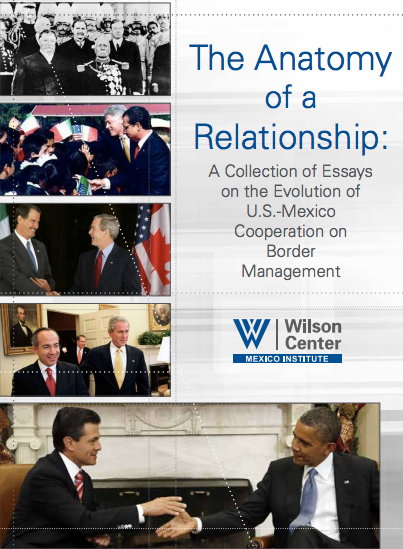
Full title: The Anatomy of a Relationship. A Collection of Essays on the Evolution of U.S.-Mexico Cooperation on Border Management
Source: Wilson Center
Date: June 2016
Abstract: The conventional wisdom among those who study the border is that following the terrorist attacks of September 11, 2001, the United States unilaterally imposed significant additional security requirements on the management of the U.S.-Mexico border, and that the measures taken to meet these requirements have made the border more difficult to cross for not only illicit but also licit traffic, including the trade and travel that is the lifeblood of cross-border communities. There is a great deal of truth in this interpretation, but it largely portrays Mexico as a passive receptor of U.S. policy, which could not be further from the truth. Rather, the increasing relevance of transnational non-state actors posing border and national security threats in the region—especially terrorist groups and organized crime networks—have demanded increased international cooperation to monitor and mitigate the threats. At the same time, the U.S. and Mexican economies have become ever more deeply integrated, causing significant growth in cross-border traffic and making the efficient management of the U.S.-Mexico border a first-order national interest for both countries.
To download the full document, click here.

